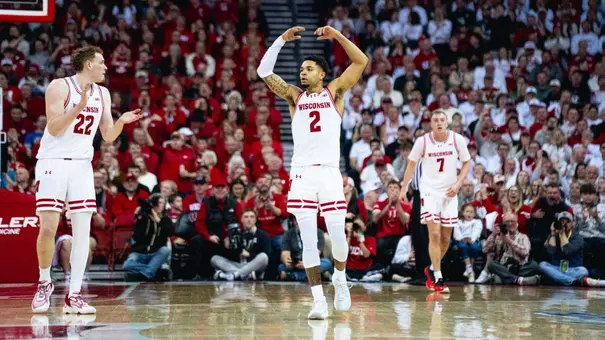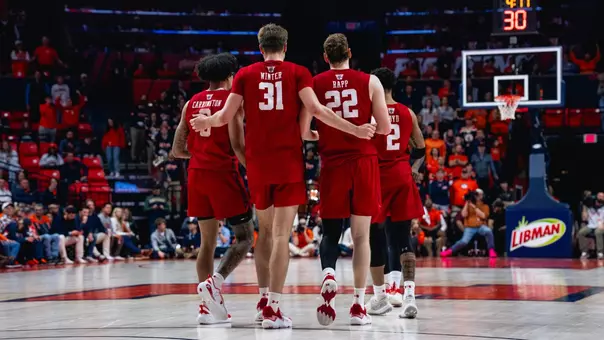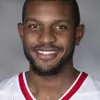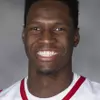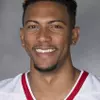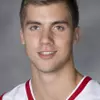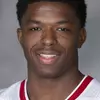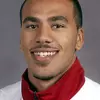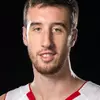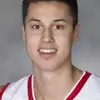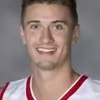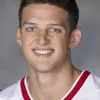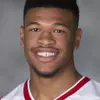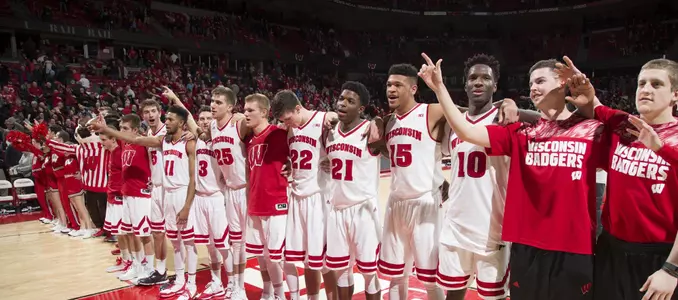
Back in Step: How the Badgers fought their way to the Big Dance
March 17, 2016 | Men's Basketball, Mike Lucas
It wasn't the smoothest road, but Wisconsin is dancing once again
Early-season stumbles seemed sure to scuttle Wisconsin's chances for an 18th-consecutive invitation to the NCAA tournament but, by finding their footing during an impressive mid-season surge, the Badgers find themselves back in the Big Dance once again. | From Varsity Magazine
 | ||
|
BY MIKE LUCAS
UWBadgers.com Senior Writer
During last week's Big Ten tournament in Indianapolis, Wisconsin was housed at the Omni Severin Hotel, a two-block walk from Lucas Oil Stadium, the site of the 2015 Final Four.
While the Badgers checked out early — after an opening loss to Nebraska — there was still a rush of special memories from last April when they also stayed at the Omni.
"It was everywhere I went," said UW assistant Lamont Paris. "It was waiting in line for an elevator; it was the room that you were in."
Paris walked up to the hotel's mezzanine level overlooking the ornate lobby.
From there, standing in the same spot that he had stood less than a year ago, he remembered the conversation that he had with Steve Moore, who had coached Paris at the College of Wooster.
"We were about to go out," Paris fondly recalled, "and beat Kentucky."
Following the dramatic upset of the unbeaten Wildcats, the hotel lobby turned into a mosh pit. Badgers fans crowded into every crook and cranny to celebrate while toasting their heroes.
The Wisconsin players waved and pumped fists in the air and led cheers from the mezzanine.
"All I could think about the whole time I was there," said guard Jordan Hill, "was how crazy it was the last time. It was a little weird because there were so many less people around."
There were so many fewer players around from that team, too.
"We lost a couple of draft picks," said Hill, drolly acknowledging the personnel turnover.
That would be Frank Kaminsky and Sam Dekker. Duje Dukan is also on an NBA roster.
"Sometimes there's a magical ride, I just felt that was a magical group more than anything," Paris said. "I can't say that I was surprised that we were there.
"I fully expected to win every single game. I just felt that team was very special that way."
Although the Badgers came up short against Duke in the national championship game, it didn't take away from what they accomplished or what it took to get there under the burden of expectations.
"There was a ton of hard work," Hill said. "But everyone's love for the game bled through. We didn't look at it like a chore or a job. We had fun and did what we were supposed to do.
"We stayed really loose … we didn't try to over-think anything."
"I think that's going to be the key for us (this season) being somewhat of a new group with less experience. We just have to stick to what we've been doing all year that has been working for us.
"We have to run our (offensive) sets the way we're supposed to. We have to play defense the way we're supposed to. And we have to do it together and have fun.
"Honestly, as long as we keep as close to that as possible, I see us making a good run."
The bracket journey starts anew Friday night at the Scottrade Center in St. Louis when the No. 7 seed Badgers face No. 10 seed Pittsburgh in a first-round game in the East Region.
"You say, 'Wow, this might be the end of that streak.' But you just put your head down and go to work."
On his own postseason expectations for this 20-12 team, Paris said, "I don't have a limit on it, I'll tell you that much, because I've seen what we can do when we've played well."
Last week's trip to Indy impacted Zak Showalter the same way it did Hill and Paris.
"Just being in the same hotel and everything, that same lobby again, there are a lot of good memories in that city for us," he said. "It took a lot of hard work to get where we were.
"This team has worked really hard this year to start putting our name back in the conversation that we had last year. That was great to be a part of. But we're ready to make our own story this year."
• • • •
Most people were ready to write Wisconsin's obit after a mid-January loss at Northwestern. The Badgers were 9-9 overall and 1-4 in the Big Ten.
After 17 consecutive trips to the NCAA tournament, there were legitimate concerns on whether the team could recover enough to even qualify for the NIT.
"I didn't allow myself to think that far ahead," said Greg Gard, who took over as the Badgers' interim head coach in mid-December after Bo Ryan announced his retirement.
"I was just trying to get to the next day. Like we've told these guys, 'Just stick to the process.' I tried to do that myself."
So did Paris. "I didn't think about it that much to be honest with you," he said. "At that point, I just knew that we needed to get better in terms of learning how to win games.
"As far as anything about the NCAA tournament, it was clearly far from my mind."
The players also had to deal with the reality of their mid-January status.
"We had the goal of making the tournament and competing in the tournament, so you don't want to think about that too much (not making it)," Showalter said.
"But you hear what other people are saying sometimes, and people didn't expect us to be in this position."
Vitto Brown agreed with those who felt the streak of Big Dance appearances may have created a sense of false security within the fan base and the assumption that it was a birthright every March.
"We got spoiled in our first two years here — being automatic like that," conceded Brown, a junior. "But I never once thought about not making it. We just focused on getting back on track."
"But," Bronson Koenig said, "having made the tournament so many years in a row, it's like, 'We don't want to be the team that doesn't make the tournament.'
"So we knew that we had to turn things around quickly."
Shortly after Gard took the coaching reins from Ryan, he reached out to Howard Moore, a former UW player and assistant, to join his staff in Madison.
After five years of running his own program at Illinois-Chicago, Moore was working as a studio analyst for Big Ten Network, so he saw everything in a different light, including the streak.
"I'd be lying if the thought didn't cross my mind," Moore confessed. "You say, 'Wow, this might be the end of that streak.' But you just put your head down and go to work.
"The direction was, 'Hey, let's go one game at a time and see what happens.' If you try to look too much big picture, you can lose sight of where you're at in the moment.
"And, in the moment, we were just trying to find ourselves."
Moore recounted a phone call with Gard.
"As soon as Greg called me (after the coaching change) and we talked about me coming back, it was one of the first things that we talked about, 'Are we going to put the Swing (offense) in?'
"While I was working on getting the HR (Human Resources) stuff squared away, he was getting the blueprint back in place about getting the team back in order."

Analyzing what had gone wrong during the first 18 games of the season, Moore said, "We weren't defending well, we weren't moving on offense, we weren't moving the ball."
By recommitting to the Swing, a staple of Ryan-coached teams for decades at Platteville, Milwaukee and Wisconsin, there was more flow and structure; more screening and less dribbling.
"Mainly, offensively, it was the spacing," Brown said. "We were real cluttered and we got stagnant a lot of times on offense."
The Swing was not the only change.
"We had to get back to competing again," Showalter said. "I think we lost our competitiveness in a couple of games and we let a couple of games get away from us that we should have taken care of."
That was discussed during a players meeting after the Northwestern loss. Nigel Hayes and Koenig were vocal about what changes had to be made from their end.
"We just had to stick together and not get too down on ourselves," Koenig said. "It was just a matter of coming together more as a team collectively."
The turning point was a home win over Michigan State on Jan. 17; it was the first of seven straight, an impressive stretch that was highlighted by a statement victory at Maryland.
"Coach Gard always tells us, 'We haven't played our best game yet,'" related Hayes. "Our closest was Maryland. That was a pretty solid performance by us."
During this span, Hayes steadily morphed into the leader that the team needed.
"The first two years here we always seemed to get a little better (as a team) and that could have been attributed to the older guys we had," said Hayes, a junior.
"Bronson and I are in those shoes and we have to pick up our efforts the same way. I saw Frank (Kaminsky) pick up his effort, Trae (Traevon Jackson) pick up his and Ben (Brust) when he was here. I was a younger guy looking at them.
"If we are able to do that and play with emotion, toughness, leaving-it-all-on-the-court effort, other guys will definitely come along."
Gard let more guys play by expanding the bench — another element in the turnaround. In that Michigan State win, he played Hill, Aaron Moesch, Alex Illikainen, Khalil Iverson and Charlie Thomas.
Hill and Moesch are third-year sophomores. The other three are true freshmen.
"Since we're so young," Koenig said, "Coach (Gard) has done a great job of getting some of the younger guys in the lineup and getting them some good experience.
"I'm sure the guys are going to step up big in the tournament. We haven't played our best basketball yet either. Now would be a great time to start and play up to our potential."
From game to game, the bench results have varied, especially the last month. "I definitely need to continue to use my bench and get that group into a rhythm," Gard emphasized.
The first-year players are still adjusting to the growing pains of a long season.
"They're freshmen, so they have been up and down," Moore said. "Hopefully the juice of being in another tournament and the lack of familiarity an opponent has with us will help a little bit.
"Obviously, the scouting in our league is tremendous and maybe a little less information can help. We're playing for something different now and that should energize the whole group."
Hill is confident that the bench will produce when needed.
"You know me, I'm never lacking confidence," he said with a smile. "You just have to be encouraging (to the freshmen), myself included.
"It's just a matter of staying positive and being ready when your number is called, no matter if you're playing five minutes or 25. They're all going to work it out and be fine.
"You have to remember that you're here for a reason."
"We haven't played our best basketball yet either. Now would be a great time to start and play up to our potential."
• • • •
What's the blueprint of success for the NCAA tournament?
"From a basketball standpoint, there are a couple of things that we need to shore up," Paris said. "One is our attention to detail defensively and our defensive synergy."
The Badgers have been hurt by dribble penetration, so an emphasis has been placed on staying down in a stance, pinching gaps and "absorbing the dribble" to cut off driving lanes.
"Too many gaps," Brown said, "too many ways teams could drive on us and get open buckets."
Wisconsin's transition defense also came into question with losses to Purdue and Nebraska. Poor shot selection on offense and long rebounds can account for some of this.
"Historically," Moore said, "we've always been the type of team that gets better defensively as the year goes on. I see this team doing that with a lot of film work and a lot of emphasis in practice."
When Kansas' Bill Self, the coach of the No. 1 overall seed, was quizzed on what it takes to make a deep run, he pointed to a team's health going into the tournament.
"With most teams," Self also said, "it comes down to making shots. All teams will guard, but you've got to have guys step and be able to knock down open shots.
"That has been as big of a key with us as any."
The Badgers shot just 30 percent, 4-of-20 from beyond the arc, in the Nebraska loss.
"It always looks better when shots go in," Gard rationalized. "In terms of how we play, we didn't do anything different (in the Maryland win) other than the shot goes in, so that cures a lot of ills.
"We just need to get back to who we are. I don't think we have to change a whole lot other than finishing around the rim. We left 34 points in the paint (against the Cornhuskers).
"Maybe getting different scenery now, a different opponent, will help."
Beyond maybe pushing the tempo a little, the Badgers want to stick to their formula on offense.
"We want to get back to grind-it-out basketball," Moore said. "Getting the ball inside, valuing each possession, making sure we get to the free throw line and into the bonus before our opponent."
Taking good shots, and making them, is the most influential aspect of any equation.
"That," Paris said of the shot-making, "is the byproduct if you're playing confidently and freely. In a tournament scenario, it's hard to be tight and score enough, no matter how good your defense is.
"You have to feel good about yourself offensively. That's the main thing. You have to feel good about yourself individually and what you're doing as a team offensively."
Communication (on the floor) and chemistry (off it) can't be overlooked, either.
"The best teams are the ones that are really clicking in March and coming together as a group and playing as a unit," Showalter said.
"You can't play selfish and you can't play as individuals because you'll get bumped early and you'll be watching on TV. So, obviously, we don't want to be doing that in the next couple of weeks.
"We want to keep on playing."
To get to this point, Gard said, "This group has created its own identity."
And now it must be willing to embrace what it will take to advance.
"Be aggressive," Hill said. "Be tough. Be smart. And do it all together."
Gard will remind his players of something else before they embark on their bracket journey.
"Relax, be yourself and just go play," he will encourage them. "I think sometimes too much gets made of the matchups and how you are playing (coming into the NCAA tournament).
"Let's play to what our strengths are. Have fun with it. And roll the dice and see where this thing can take us."

